Research
The research activities of the professors in the Condensed Matter Physics Group involve studying the physical and technological properties of thin films, surfaces and interfaces in the area of materials, and procedures for micro-electronics and nanoelectronics, photonics and functional coverings.
The aim of this research is to understand, at a fundamental level, physical systems that offer significant potential for technological developments.
The researchers have solid experimental and theoretical backgrounds and are members of the Groupe de recherche en physique et technologie des couches minces (GCM), thereby benefiting from considerable resources.
Their research subjects are varied and complementary, and include:
- The physics of semiconductors and heterostructures of quantum confinement
- Metallic nanostructured multilayers and their electric and magnetic properties
- High-energy ion implantation for the modification and analysis of materials
- Defects and atomic transport processes in materials
- Disordered systems and relaxation
These systems are studied using a variety of techniques, both experimental (optical spectroscopy, ionic implantation, etc.) and theoretical ab initio calculations coming from functional density theory, molecular dynamics, relaxation algorithms, Kenetic Monte Carlo, etc.
The Condensed Matter Physics Group receives substantial research grants. Along with the materials centres at McGill University and the Université de Sherbrooke, it is one of the 3 poles in the Réseau québécois sur les matériaux de pointe (RQMP), a FQRNT Strategic Cluster program. This network is the largest group of researchers in material science in the country, and it plays a significant role in the area of advanced materials.
The GCM is also financed by the NanoQuébec network and receives a large infrastructure grant from NSERC. The theorists are members of Calcul Québec (CQ), and can draw on its very powerful computational infrastructure, as well as substantial funding for developing and optimizing computational tools. Three FQRNT research teams are included in the group.
This content has been updated on October, J 15 at 11 h 04 min.
